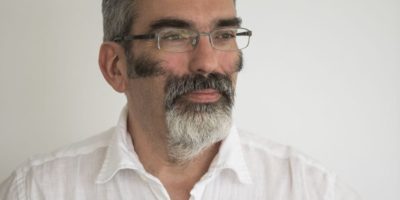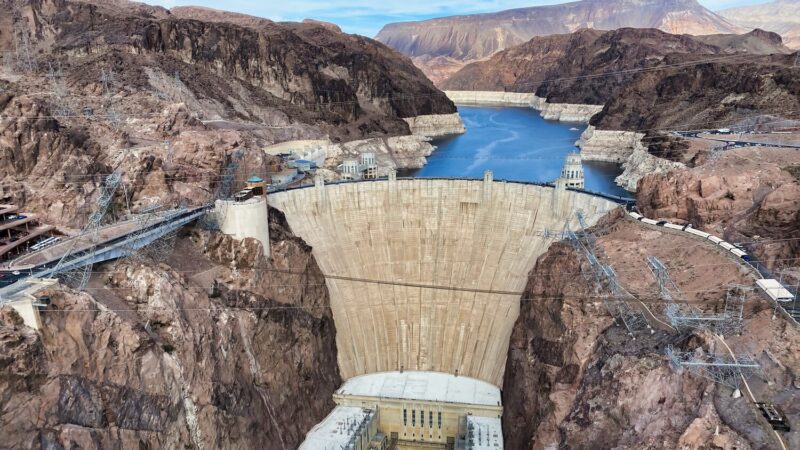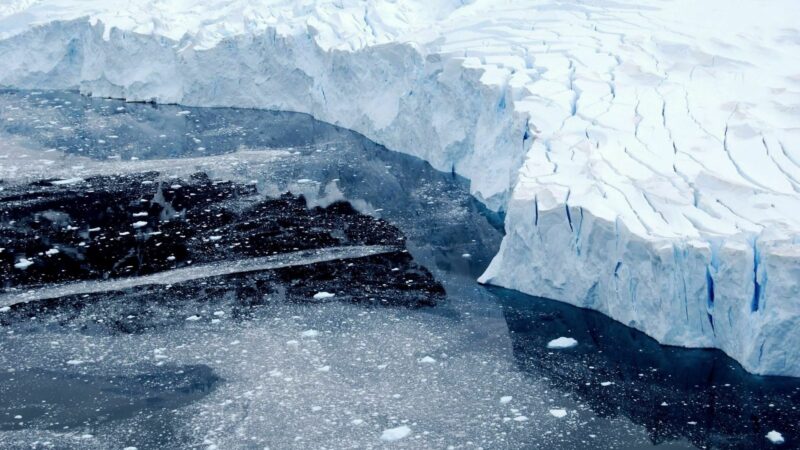
Geoengineering: one way we might turn out alright
At tonight’s Oppenheim lecture—live streamed here at 7 p.m.—a panel of four experts will debate California’s plan to move to 100 percent renewable energy, and whether the strategy could work…
Author Oliver Morton discusses geoengineering, renewable energy, science fiction—and a positive way of imagining a future world.
At tonight’s Oppenheim lecture—live streamed here at 7 p.m.—a panel of four experts will debate California’s plan to move to 100 percent renewable energy, and whether the strategy could work globally. (This story is about a past event; a video recording is available at the above link.)
The discussion will be moderated by Oliver Morton, a British science writer and Economist Magazine’s editor for energy and the environment. We recently sat down with Morton to talk about the debate and his most recent, critically acclaimed book The Planet Remade: How Geoengineering Could Change the World.
Geoengineering is a concept that may not be familiar to everyone. How would you explain it?
Humans already impact the world in diverse and very deep ways. The idea that humans are a little phenomenon that happens on the surface of planet is no longer tenable. Humans are deeply involved in all sorts of ways the world works. Climate is one of the most obvious examples. Rather than accepting that the things we do have environmental impacts that we try to reduce, geoengineering asks, “Is there any way to use some of that capability deliberately? Are there any ways that it might be fair and just and practical to try and intervene in the climate on a global scale in order to make things better than they would otherwise be?”
It’s an idea that’s full of risk—technical risk and the risk of forming hubristic habits of thought, where you think of humans as having mastery and control over the planet. And that’s not exactly what you’re talking about. For instance, if you build a bridge over a river, that’s not mastery and control over the river. The river’s still there, you’re just helping people to get across. Similarly, geoengineering is not about trying to control the planet, it’s about trying to change things in such a way that the harm that we’re doing in other ways—the harm that’s coming about from climate change—might be somewhat reduced.
The central example of geoengineering in The Planet Remade is veilmaking. Can you describe that and why you chose it?
Veilmaking is putting a lot of tiny little particles into the upper atmosphere in a way that would reflect away sunlight to space before it gets to the surface of the planet and warms the planet. We’re talking about a fraction of a percent of the sunlight coming in and being reflected back out.
There are various reasons for talking about this. One is that this is a form of geoengineering that people study more than any other form. The other reason is that we know that this happens naturally because there is a thin layer of the stratosphere that reflects away sunlight. Normally, it’s almost negligible. But after a volcano goes off, the volcanic acids create more particles and the particle layer in the atmosphere becomes denser. You get sunlight reflected and the planet cools as a result. It’s a little bit less scary talking about something when you actually have worked examples of it.
What would you say to people who may be concerned about unintended consequences?
I think there are three different types of risk from geoengineering. One is if it does real damage to something or an aspect of the way the world works, or if it does damage in a political way—two nations disagree about geoengineering or what the right kind of geoengineering is, and that exacerbates our tensions.
Another set of worries is the worry that if people think about geoengineering, then they might do less of the stuff that they should already be doing more of, which is reducing carbon dioxide emissions. The single thing I want get across most when I talk about geoengineering is that this is not an alternative to reducing fossil fuel emissions. Whatever you do, reducing fossil fuel emissions makes great environmental sense. What geoengineering allows you to do is reduce harm in other ways, too. It’s complimentary medicine for the planet.
The third worry is that this is just not a proper thing for humans to do—that there’s something about the relationship between humans and nature that should preclude treating the world as a thing to engineer. That it should include a reverence to nature which accords privilege for the way nature used to be. That’s a very powerful set of ideas in many parts of the world. I respect those ideas, but I don’t think they should stop the debate before it starts. You may read my book and talk to people about geoengineering and decide in the end that “no I don’t want to live on that planet that humans have a controlling stake in this way,” but I’d like you to do that at the end of the process.
If geoengineering makes sense at all, it makes sense as a way of reducing harm to people who are in severe risk. Basically, for climate change, the people at the greatest risk are poor people in developing countries. You may not want a world that seems more artificial, but you have to think if it’s really right to impose your view of that on the whole world. Other people have different priorities.
Political and business considerations seem to inhibit innovation at times. The energy industry resists environmental regulation of coal power plants, and so on. You touch on these concerns in your book. Can you talk a little about this aspect as it pertains to geoengineering?
There are people who worry a lot that this would be a corporate takeover of the climate, but it’s pretty hard to see how people will make a profit out of it. The bigger concern that some people have is actually the political risk. In America you have this particular issue of people who deny that there’s any aspect of climate change that needs dealing with. They deny that climate change is actually man-made, or deny that it’s doing harm, or whatever.
There is a worry among people who think about geoengineering that those people might pivot from denying that climate change is a problem at all to saying “OK, climate change is a problem, but geoengineering is a solution in and of itself.” There is a real risk of that happening. They’re both ways of saying “we don’t need to reduce fossil fuel emissions.” One the reasons to have a big public debate about geoengineering is so that people can’t spread lies about what geoengineering is not.
What made you decide to moderate the Oppenheim panel discussion on renewable energy? How does it relate to your work?
How fast and how easily can you move away from a fossil fuel-based economy is central to everything else you think about the climate. One of the reasons it’s worth thinking about with regard to geoengineering is that moving definitively away from a fossil-based economy is really difficult. I would love to be wrong about that. I think there’s been some encouraging research lately that you can go further, deeper and faster with renewables than I thought ten years ago. But, even so, we’re a global civilization that gets 80 percent of its energy from fossil fuels. It’s very hard to go from 80 percent of something to zero.
What hope might geoengineering offer future generations?
I think rational optimism is a good basis for doing things. Geoengineering allows you to think about ways in which the world can be made better. I think it’s a really helpful tool to think about the world even if you don’t go on to act in the world. Like the human body, the world is a marvelous, complex and interesting mechanism.
I find it interesting to think about how the world might be different, to think about what happens if you speed up or slow down the carbon cycle. It’s actually quite a deep way to think about, how we play with things to learn about them. Now, you obviously don’t want to play with the real world, but you do want to play with your ideas of that world and to think about ways that it might be different or better or worse. The environmental imagination for the last 50 years has been deeply focused on the ways the world can be worse, will be worse, must be worse… ways that we can’t escape an ever-worse world. It’s nice to have other sorts of thoughts.
Some of what you describe in your book sounds like it’s out of science fiction. At other times, it sounds more like art. How important is it for environmentalists to capture public imagination?
It is absolutely crucial to capture the part of the public imagination that isn’t about politics and isn’t about doom, and is about dreaming and the experience of trying to work out how you fit in the world. And experiencing the world as a beautiful place and experiencing human activity as beautiful. I think there’s a role for an environmental imagination that sees human activities as potentially beneficial.
It’s interesting you mention science fiction, which is a pastime and interest of mine. People have this way of thinking that science fiction is by its definition not true. So you endlessly get these stories that start out “it used to be science fiction but now it’s fact” or “this fact is stranger even than science fiction.” That just misunderstands our modern world. Our modern world is science fiction in any normal sense of it. Up the road, at Jet Propulsion Laboratory, there are guys looking after a robot that is rolling around an ancient lake bed on Mars, zapping rocks with a laser beam. In Britain, we’re working on a 100,000 genome project. The world we’re already living in is what used to be the future.
Published:


